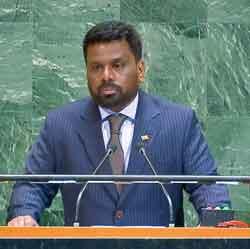 In a healthy democracy, the relationship between a leader and the citizen is that of a responsible employer and a hired manager. We, the employers, are supposed to evaluate performance based on deliverables. Is the infrastructure sound? Are public services functional? Is the nation secure and prosperous? Somewhere along the line, we abandoned this model.
In a healthy democracy, the relationship between a leader and the citizen is that of a responsible employer and a hired manager. We, the employers, are supposed to evaluate performance based on deliverables. Is the infrastructure sound? Are public services functional? Is the nation secure and prosperous? Somewhere along the line, we abandoned this model.
We have instead become the live studio audience for a never-ending political talent show, judging our leaders not on their administrative report cards, but on their ability to deliver a captivating performance. We measure their worth not in tangible outcomes, but in decibels of applause, shares of viral moments, and the ferocity of our own emotional investment. This is not an abstract concern. The consequences of this shift from a culture of governance to a cult of performance are visible in the crumbling concrete of our infrastructure and the growing void where substantive political discourse should be.
Narendra Modi and the Art of Symbolic Governance

“A ‘Sindoor’ operation on the games field. The outcome is the same – India wins!”
The tweet, referencing the successful ‘Surgical Strikes’ and the colour of the victory trophy, was a masterclass in political branding. It instantly fused athletic achievement with military valour, a potent cocktail of national pride. His supporters revelled in the “strong leadership” it projected. His detractors decried the trivialization of military operations. Both reactions, however, were part of the designed spectacle. They missed the strategic objective: the substitution of symbolic action for administrative substance.
Consider the context. This tweet came from a leader whose government has been defined by its mastery of political narrative. Projects are launched not just as infrastructure initiatives, but as grand nationalistic endeavours, from Swachh Bharat (Clean India), Digital India to Aatmanirbhar Bharat (Self-Reliant India). The vision speeches are epic; the implementation reports are often less so. This is the Modi model’s genius and its peril. Why wrestle with the intractable, slow, and often invisible work of cleaning a river, when a perfectly crafted tweet can achieve a more immediate and visceral sense of national accomplishment? It’s a brutal calculus of modern politics: the political capital earned from a viral moment often outweighs the capital spent on a decade of grinding policy implementation. The citizen is transformed from a stakeholder awaiting public goods into a fan cheering a symbolic victory. We are not asked to evaluate water quality data; we are invited to feel a surge of pride. And feeling, in the short term, is far more politically lucrative than governing.
Vijay’s TVK Rally and the Price of Organizational Failure
Vijay’s TVK rally in Karur intended to be a show of force, a demonstration of his political viability. It ended in chaos. A crowd surge led to multiple injuries; attendees were crushed, some died.
The political response was a case study in our inability to process technical failure. TVK supporters and allies immediately alleged sabotage, suggesting a conspiracy by the ruling DMK to disrupt the event. The DMK and other critics pounced, labelling it proof of Vijay’s profound incompetence. The tribal playbook was followed perfectly: Deflect and blame, or attack and ridicule. What was almost entirely absent was a forensic, apolitical examination of a simple question: Why did the organizational machinery fail?

Managing a crowd of tens of thousands is a technical skill. It involves traffic planning, barricade placement, crowd flow management, emergency medical deployment, and clear communication protocols. It is, in microcosm, a test of a party’s administrative DNA. A party that fails this test reveals a potentially fatal flaw: a focus on spectacle over structure, on image over infrastructure. The Karur rally was a real-world stress test of TVK’s managerial capability, and the result was a failing grade. Yet, the political conversation swiftly moved away from this uncomfortable truth. The narrative was not “This party needs to hire competent event managers and security consultants before it can be trusted with a manifesto.” It was “Our team was wronged!” versus “Your team is inept!” We are willing to forgive a failure of basic competence if the performance, the passion of the crowd, the energy of the leader, was compelling enough. It is a dangerous precedent. If a party cannot be trusted to plan a single event safely, the leap of faith required to trust it with a multi-billion-dollar state budget, a police force, and a public health system is staggering.
The UN Speech of President Anura Kumara Dissanayake
President Anura Kumara Dissanayake (AKD) addressed the United Nations General Assembly. It was a sharp, articulate speech. He critiqued Sri Lanka’s history of corruption and geopolitical pawnship, calling for a “system change” and a non-aligned foreign policy. It was a competent, credible performance on a world stage, precisely the kind of presentation one would expect from a politician aspiring to lead a nation. The reaction back home was a perfect snapshot of our broken political lens.

His supporters in the National People’s Power (NPP) coalition treated it as a messianic proclamation. Social media flooded with clips declaring him the only leader with a “global vision.” His critics, particularly from the ruling parties, dismissed it as “just a speech,” empty rhetoric devoid of policy specifics. Once again, we witnessed the binary trap: deification or dismissal. The possibility that it was simply a well-executed part of his job, effective political communication, was lost. This phenomenon is born from a vacuum of competence. When the political landscape is dominated by performers and dynasts, the simple act of speaking logically and without a teleprompter can seem revolutionary. AKD’s rise is directly linked to this hunger for substance. Yet, the danger lies in the weight of expectation this creates.
A brilliant UN speech does not detail how to restructure Sri Lanka’s $83 billion sovereign debt. It does not outline the logistical nightmare of reforming a bloated, inefficient public sector. It does not solve the fertilizer shortages for farmers in Anuradhapura. These are the managerial challenges that await. By treating a competent speech as a transformative event, we risk repeating the cycle we claim to want to break.
We are searching for a hero who will deliver us with a grand speech, rather than a competent manager who will deliver us through the grind of implementation. We are applauding the trailer for a movie that hasn’t been filmed yet, assuming the final product will be just as good.
The Great Decoupling
The common thread weaving through these three scenes is what can be termed The Great Decoupling. The skills required to attain power in the 21st century have become almost entirely divorced from the skills required to wield it effectively.
- Skills to Attain Power: Charisma, narrative craft, social media virality, symbolic gestures, tribal mobilization.
- Skills to Wield Power: Administrative competence, policy expertise, institutional knowledge, bureaucratic management, pragmatic problem-solving.
Our electoral systems and our media consumption habits increasingly reward the former. Getting on the news, trending on X, or dominating the WhatsApp forwards requires performance. Fixing a municipal water supply does not. This creates a vicious cycle. As governance deteriorates due to a deficit of managerial skill, public frustration grows. Frustrated citizens become more susceptible to charismatic performers who promise simple, dramatic solutions. These performers, once in power, focus on the performative aspects that got them there, further degrading the state’s capacity. The plumbing rusts, but the spotlight gets brighter.
Turning Off the Applause Meter
The solution does not lie in waiting for more virtuous politicians. It lies in our hands, as the ultimate
employers. We must consciously re-calibrate our evaluation metrics. We must start asking for detailed, costed, and credible plans. How, specifically, will you
create jobs? What is your step-by-step plan for agricultural reform? Vague promises of “system change” or “a golden era” are the currency of performers.

We must develop a public respect for technical expertise. The best finance minister may be a dull economist, not a fiery orator. The best health minister is one who understands supply chain logistics, not one who gives stirring speeches about public health. We must learn to appreciate a good performance for what it is, entertainment, while judging a leader’s worth on the far duller metrics of project completion rates, educational outcomes, and public service efficiency.
When a rally turns deadly due to poor planning, it should be a career-ending event for the organizers, not a blip in the news cycle. We must reinstill a sense of consequence for administrative incompetence, regardless of the party colour it wears. The performers will always be with us, offering the easy comfort of tribalism and the thrilling rush of symbolic victories. But a nation cannot be built on applause. It is built on a foundation of functioning schools, reliable roads, clean water, and a competent, invisible bureaucracy. It is time to turn down the volume on the political theatre, step out of the audience, and start reading the fine print in the manager’s report. Our future depends not on who gets the loudest cheers, but on who does the quiet work.











